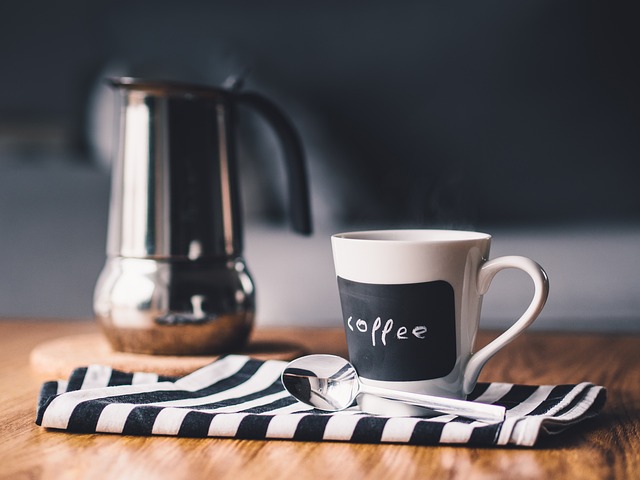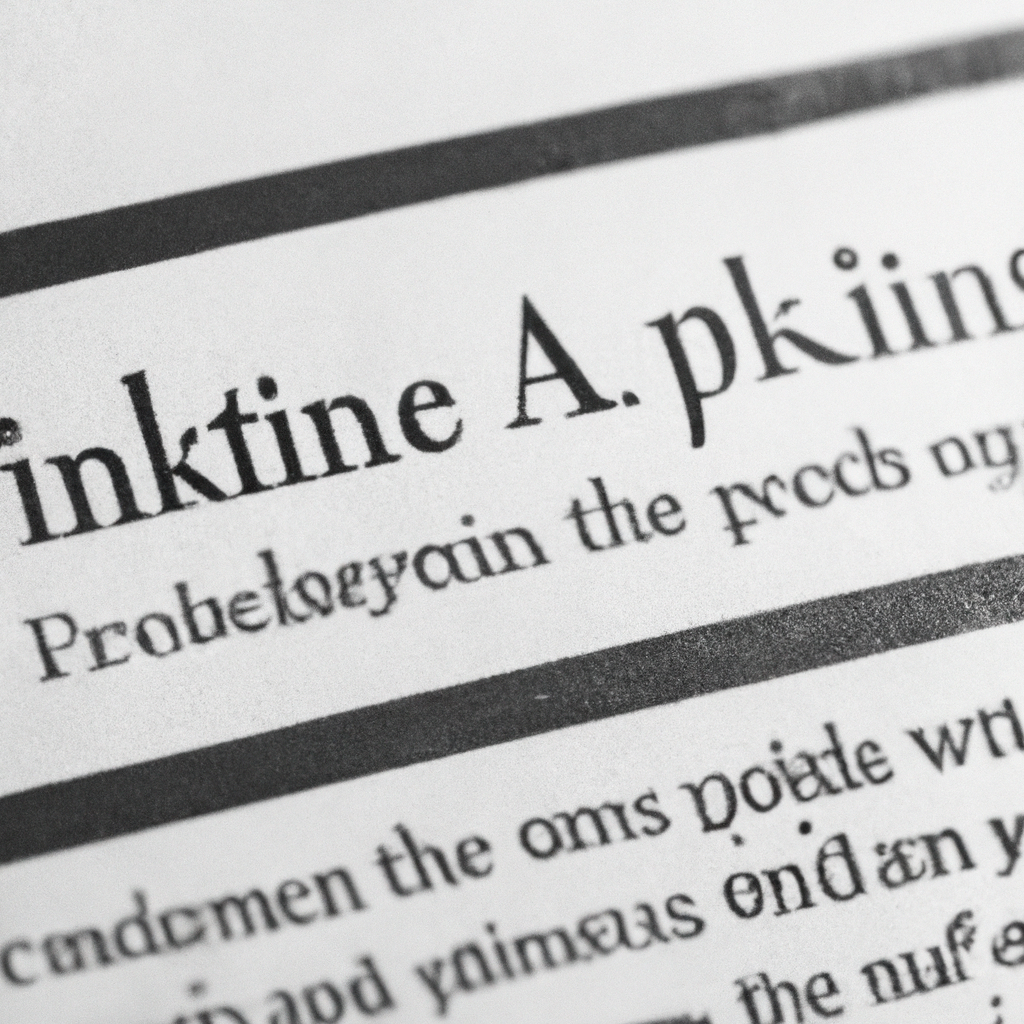Are you a fan of Chai tea? The warm, aromatic blend of spices and rich flavors has been a source of comfort and delight for centuries. But have you ever wondered if this beloved beverage contains caffeine? It’s a question that often lingers in the minds of tea enthusiasts. In this article, we’ll explore the captivating world of Chai tea and unravel the mystery surrounding its caffeine content. So grab a cup of your favorite brew and join us on this enlightening caffeine-filled adventure.
1. The Intriguing Blend: Unraveling the Mysteries of Chai Tea
Chai tea is a captivating beverage that has gained popularity worldwide. Its unique blend of flavors and aromas has intrigued tea lovers for centuries. This ancient Indian concoction is made with a combination of black tea, spices, milk, and sweeteners. The result is a rich and creamy drink that is both comforting and invigorating.
One of the most captivating aspects of chai tea is the medley of spices used in its preparation. Common spices include cinnamon, ginger, cardamom, cloves, and black pepper. Each spice lends its own distinctive flavor, creating a harmonious symphony of tastes that dance on your tongue. The warmth of ginger, the sweetness of cinnamon, and the aromatic burst of cardamom all contribute to the allure of this beverage.
- Chai tea is known for its bold and robust flavor.
- The combination of spices used in chai tea enhances its complexity.
- The addition of milk gives chai tea a creamy and velvety texture.
- Sweeteners like honey or sugar add a touch of sweetness to complement the spices.

2. The Tale of Chai Tea: A Spicy and Aromatic Delight
Chai tea is a delightful and refreshing beverage that originated in India centuries ago. This aromatic beverage is made with a unique blend of spices, tea leaves, milk, and sweeteners, creating a flavor profile that is both spicy and sweet. One sip of chai tea is like taking a journey to the bustling streets of India, where it is commonly enjoyed by locals and tourists alike.
What sets chai tea apart from other tea varieties is its rich and complex taste. The combination of spices like cinnamon, cardamom, ginger, and cloves infuses the tea with a warm and invigorating flavor that is unparalleled. The addition of milk brings a creamy touch to the tea, balancing out the boldness of the spices. To further enhance its taste, chai tea is often sweetened with honey or sugar, adding a touch of sweetness that complements the spiciness perfectly.

3. Caffeine Alert: Unveiling the Truth Behind Chai Tea’s Energy Boost
Chai tea, with its rich blend of spices and creamy texture, has long been enjoyed as a comforting beverage. But have you ever wondered about its energizing effects? Let’s dive into the truth behind the caffeine boost of this popular drink.
Contrary to popular belief, chai tea does not typically contain as much caffeine as your regular cup of Joe. While a cup of coffee can pack anywhere from 95-200 milligrams of caffeine, a typical serving of chai tea contains around 25-50 milligrams. However, don’t let those numbers fool you! Chai tea can still offer a gentle energy boost without the jitters often associated with high caffeine content. The presence of black tea, which is a key ingredient in chai, provides a modest amount of caffeine but also a host of other beneficial compounds like theophylline and theobromine. These compounds work together to improve focus and mental clarity while keeping you alert.
- Chai tea’s energy boost is more gradual and sustained compared to the sudden spike and crash associated with coffee.
- The presence of spices like cinnamon, cardamom, and ginger not only adds to the charming flavor profile but also enhances digestion and metabolism, leaving you feeling invigorated.
- Chai can be an excellent alternative for those who are sensitive to the high caffeine levels in coffee, providing a pleasant pick-me-up without any overwhelming effects.
So, the next time you reach for a cup of chai tea, savor its delightful flavor and enjoy its subtle and nourishing energy lift. It’s a warm, comforting beverage that can revitalize your senses without the caffeine punch!
4. Delicate Balance: Understanding Chai Tea’s Unique Caffeine Content
Chai tea is a beloved beverage known for its rich and aromatic flavors. Beyond its taste, the caffeine content of chai tea is a topic that often sparks curiosity among enthusiasts. There is a delicate balance when it comes to understanding the unique caffeine content of chai tea, as it is a blend of black tea and spices.
Here are some key factors to consider when exploring the caffeine content of chai tea:
- Black tea base: Most chai tea recipes use black tea as the base, which naturally contains caffeine. Compared to other types of tea, such as green or white tea, black tea generally has a higher caffeine content.
- Spice infusion: Chai tea is known for its aromatic spices like cardamom, cinnamon, cloves, and ginger. While these spices do not add significant amounts of caffeine, they enhance the overall flavor profile of the tea.
- Ratio of black tea to spices: The ratio of black tea to spices can vary among different chai tea blends. Some blends may have a higher proportion of black tea, resulting in higher caffeine content, while others may emphasize the spices more, resulting in lower caffeine content. It’s important to read the label or ask the vendor for details.
It’s worth noting that the caffeine content of chai tea can also depend on factors like the brewing time and temperature. Generally, a longer brewing time or higher water temperature can extract more caffeine from the black tea leaves. If you’re looking to enjoy a chai tea with less caffeine, you can opt for decaffeinated black tea or explore herbal chai blends, which do not contain any actual tea leaves and are naturally caffeine-free.
5. The Spice Symphony: Exploring the Key Ingredients in Chai Tea
Chai tea, a fragrant and flavorful beverage steeped in rich history, is a harmonious blend of various key ingredients that have been tantalizing taste buds for centuries. This delightful infusion originated in India and has since become a beloved drink enjoyed around the world. If you’re curious about the mystical flavors that create this symphony in a cup, read on to explore the essential components of chai tea.
1. Black Tea: The backbone of chai tea, black tea provides a robust and slightly bitter base. Its distinctive flavor adds depth to the brew, complementing the aromatic spices harmoniously.
2. Spices: Chai tea’s signature spicy taste comes from a blend of warming spices that create a symphony of flavors. These spices can include:
- Cinnamon: Adding a sweet and woody note, cinnamon enhances the overall warmth and depth of chai tea.
- Cardamom: A fragrant spice with citrus undertones, cardamom adds a touch of freshness to the brew, making it delightfully invigorating.
- Ginger: Known for its zingy and fiery kick, ginger lends a bold and distinctive flavor that provides a comforting warmth to each sip.
- Cloves: With their strong and aromatic taste, cloves contribute a spicy, sweet, and slightly bitter element to chai tea, making it irresistibly enticing.
6. Decoding the Caffeine: How Does Chai Tea Measure Up?
Brewed with a blend of black tea, aromatic spices, and warm milk, chai tea has become a comforting and popular beverage in many parts of the world. But have you ever wondered how much caffeine is in your mug of chai? Let’s dive into the world of caffeine and decode how chai tea measures up in terms of its caffeine content.
Compared to a standard cup of coffee, chai tea generally contains less caffeine, making it a great alternative for those looking to cut back on their caffeine intake. The exact caffeine content can vary depending on the recipe and the brewing process, but typically, a cup of chai tea contains approximately one-third to one-fourth of the caffeine found in a regular cup of coffee. This means that if you’re looking for a milder, more balanced pick-me-up, chai tea might be the perfect choice for you.
Other Factors to Consider
- Tea Blend: The caffeine content of chai tea can also be influenced by the type of tea used in the blend. Traditional recipes often feature black tea, which contains more caffeine than green or herbal teas.
- Brewing Time: The longer you steep your chai tea, the more caffeine it will release into the cup. Adjusting your brewing time can help you control the caffeine level to better suit your preferences.
- Serving Size: Keep in mind that the caffeine content mentioned refers to a standard-sized cup of chai tea. If you opt for a larger serving, the caffeine intake will naturally increase.
So, if you’re looking for a cozy and aromatic beverage that provides a gentle energy boost without going overboard on caffeine, chai tea is a fantastic option. It offers a delightful blend of flavors while keeping you pleasantly awake and refreshed throughout the day.
7. The Caffeine Conundrum: Demystifying Chai Tea’s Energy Impact
Chai tea has gained immense popularity in recent years, captivating taste buds with its unique blend of flavors. But have you ever wondered about the energy impact of this delightful beverage? The caffeine conundrum surrounding chai tea is a topic of interest for many. Let’s demystify it!
Contrary to popular belief, chai tea actually contains a lower amount of caffeine compared to traditional black tea or coffee. While an average cup of black tea contains around 40-70 milligrams of caffeine, a typical cup of chai tea contains only about 25-50 milligrams. Although the caffeine content can vary depending on the specific blend and brewing method, chai tea generally provides a more moderate energy boost.
So, if you are looking for a beverage to give you a gentle lift without the jitters often associated with coffee, chai tea might just be the perfect choice. It provides a satisfying warmth and comforting experience, perfect for starting your day or as a mid-afternoon treat. For those seeking an alternative to traditional caffeinated options, decaffeinated chai tea is also available, retaining the delightful flavor profile without the caffeine content.
Furthermore, chai tea offers a variety of health benefits. Often infused with an assortment of spices like cinnamon, ginger, cardamom, and cloves, chai tea can aid in digestion, support immune function, and provide antioxidants. These spices not only enhance the flavor but also contribute to the overall well-being of the body.
In conclusion, while the caffeine conundrum raises questions about chai tea’s energy impact, it is important to note that it contains less caffeine than black tea or coffee. Chai tea can provide a mild boost and offer a delightful combination of tastes and aromas, making it a favorite among tea enthusiasts. So go ahead, savor your cup of chai tea and enjoy its unique flavors, all while embracing a moment of relaxation or productive focus.
8. From Morning to Night: Navigating the Perfect Chai Tea Experience
When it comes to the perfect chai tea experience, it’s all about savoring the flavors and embracing the ritual. Start your day off right by brewing a steaming cup of chai that will awaken your senses. Begin by choosing a high-quality loose-leaf chai tea for a more authentic taste. Add the loose tea leaves to a pot of boiling water and let it simmer for a few minutes to extract all the delightful flavors. The aroma that fills the air will instantly transport you to a bustling tea market in India.
Next, it’s time to add the perfect blend of spices to your chai tea. Traditional chai recipes often include a combination of cardamom, cinnamon, ginger, cloves, and black pepper. Experiment with different spices and their ratios to find your preferred taste. Crush the spices and add them to the simmering pot, allowing their essence to infuse into the tea. The result will be a warm, comforting beverage that is both soothing and invigorating. To enhance the experience even further, add a touch of honey or a splash of milk to create a creamy texture.
Frequently Asked Questions
Q: Does a chai tea have caffeine?
A: Absolutely! Chai tea does indeed contain caffeine.
Q: How much caffeine can be found in chai tea?
A: The caffeine content in chai tea can vary, but on average, it contains around 25-50 milligrams per cup.
Q: Is this caffeine level in chai tea high or low compared to other beverages?
A: In terms of caffeine content, chai tea falls somewhere in the middle. It has less caffeine than a cup of coffee but more than herbal teas.
Q: What factors determine the caffeine content in chai tea?
A: The type of tea leaves used, as well as the brewing method and the strength of the mix, all contribute to the caffeine level in chai tea.
Q: Which type of tea is commonly used as a base for chai tea?
A: Traditionally, black tea is the base for chai, which naturally contains caffeine.
Q: Are there any caffeine-free alternatives for those who want to enjoy chai tea without caffeine?
A: Absolutely! If you’re looking for a caffeine-free option, you can opt for herbal chai teas which are made without any tea leaves.
Q: Can the caffeine content be lowered in chai tea if desired?
A: Yes, if you prefer to reduce the caffeine in your chai tea, you can choose a decaffeinated version or mix it with herbal teas to decrease the overall caffeine content.
Q: Are there any benefits to consuming chai tea with caffeine?
A: Chai tea can provide a gentle boost of energy due to its caffeine content, which can help increase alertness and improve mental focus.
Q: Are there any concerns or side effects associated with consuming chai tea with caffeine?
A: While moderate consumption of chai tea is generally considered safe, individuals who are sensitive to caffeine may experience sleep disturbances, increased heart rate, or jitteriness if consumed in excess.
Q: Can children or teenagers consume chai tea with caffeine?
A: It’s generally recommended that children and teenagers limit their caffeine intake. Therefore, it’s best for them to enjoy caffeine-free versions of chai tea or consume it in moderation.
Q: Is caffeine the only stimulating ingredient in chai tea?
A: No, apart from caffeine, chai tea also contains other natural ingredients such as spices like cinnamon, cloves, and cardamom, which contribute to its distinctive flavor and aroma.
Q: Can these spices in chai tea cause any stimulating effects?
A: While these spices add delightful flavors, they do not have caffeine-like stimulating effects. Instead, they are known for their various health benefits and soothing properties.
Q: Are there any variations of chai tea with different caffeine levels?
A: Definitely! Some chai tea variations, like green tea chai or white tea chai, can have lower caffeine levels compared to traditional black tea chai.
Q: Can one’s brewing process affect the caffeine content in chai tea?
A: Yes, the way you brew chai tea can impact its caffeine content. If tea leaves are steeped longer or at higher temperatures, more caffeine may be extracted.
Q: Can one manage their caffeine intake while enjoying chai tea?
A: Absolutely! By being mindful of the type of tea leaves used, the brewing method, and consuming chai tea in moderation, one can easily manage their caffeine intake.
Q: Can one enjoy chai tea in the evening without worrying about the caffeine keeping them awake?
A: For individuals more sensitive to caffeine, it’s advisable to enjoy a caffeine-free chai tea in the evening to prevent any potential sleep disturbances.
The Conclusion
In conclusion, deciphering whether a chai tea contains caffeine or not can be quite a tricky task. As we have explored, chai tea is a delightful blend of aromatic spices and black tea, presenting a rich and distinct flavor profile loved by many. While traditional chai tea does indeed contain caffeine due to the presence of black tea, it is important to note that not all varieties carry the same caffeine content. So, if you’re sipping on a cup of chai tea and wondering about its caffeine levels, be sure to check the ingredients and brewing method. By opting for decaffeinated versions or herbal blends, you can still relish the comforting warmth and delightful taste of chai tea, sans the stimulating effects of caffeine. Next time you find yourself craving a cuppa, remember: knowledge is power, and now you can make an informed decision about your chai tea consumption. Cheers to flavorful sips and a caffeine-conscious tea journey!






